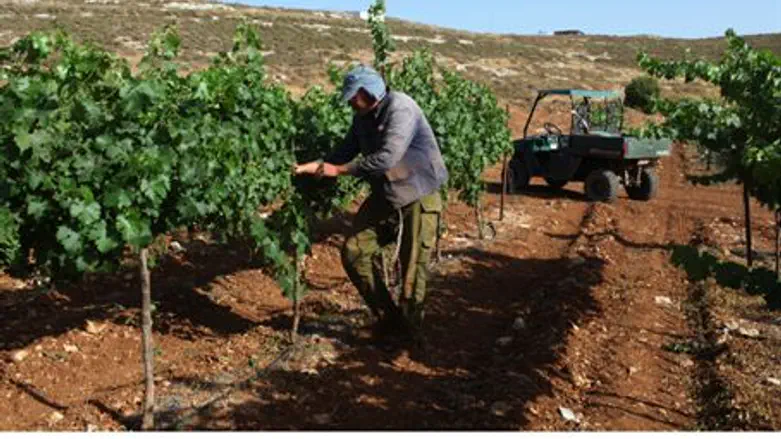
The winter that ended this week saw Israel’s most bountiful rainy season in a decade. However, farmers have an unpleasant surprise: despite the heavy rain, it was a drought year for crops.
Arutz Sheva spoke to Moshe Kahane, a farmer from southern Israel who is well-known in agricultural circles. “It started very well, in November, December and January there was a ton of rain, almost twice what fell the year before. But unfortunately, in February and March there was nearly no rain,” he said.
“Someone who eats dinner twice might be able to go without breakfast, but by lunch he’s already hungry. The plants that got a large amount of rain could go through February with no rain, but March without rain killed them,” he explained.
“From our perspective, this is a tough year. We started saying the ‘v’aneinu’ prayer from the beginning of March,” he said, referring to a special prayer recited when there is desperate need of rain.
Large crops of wheat, in particular, suffered from the lack of timely rain, Kahane said. The wheat plants grew, but the rain stopped before their grains grew in, meaning farmers will be left with large plants with tiny grains. “That’s food for animals. It’s a huge loss,” he said.
Most Israelis do not realize there was any problem with this year’s rainfall, he noted. “People are too complacent, they think this was a great year. From our perspective the rains stopping does not only mean a loss of income, it means Divine strictness [with us],” he said. “There is a message here, and we need to examine our actions.”